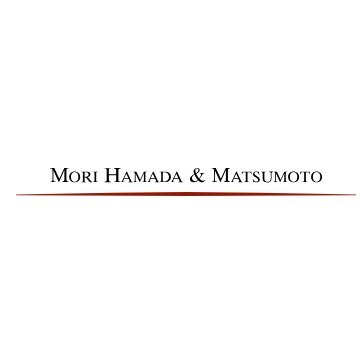Best Franchising Lawyers in Chiyoda-ku
Share your needs with us, get contacted by law firms.
Free. Takes 2 min.
List of the best lawyers in Chiyoda-ku, Japan
About Franchising Law in Chiyoda-ku, Japan
Franchising in Chiyoda-ku, which is part of Tokyo, follows the legal framework set by Japan as a whole. As Japan's economic and political center, many businesses, including international franchises, have a significant presence in the city. The Japanese franchising law does not exist as a separate legal entity but is governed by various Japanese laws and regulations, including the Civil Code, Commercial Code, Anti-Monopoly Act, and various guidelines provided by the Japan Fair Trade Commission (JFTC). These laws ensure that the franchise agreements fulfill certain standards for business practices, and competition laws are not violated.
Why You May Need a Lawyer
When engaging in franchising agreements, legal advice is often crucial due to the complexity of related laws. Situations requiring legal help include drafting and reviewing franchise agreements, navigating the registration and disclosure requirements, ensuring compliance with competition law, resolving disputes between franchisors and franchisees, and assisting with the termination or renewal of franchise contracts. Lawyers with expertise in Japanese commercial law can provide significant assistance in understanding local legislation's nuances and implications.
Local Laws Overview
Local laws relevant to franchising in Chiyoda-ku, Japan, are an integral part of the broader Japanese legal context. These include the obligation to provide a Disclosure Document (similar to the Franchise Disclosure Document in the United States) at least 20 days before signing a franchise agreement, as mandated by the JFTC guidelines. The Anti-Monopoly Act is crucial in ensuring that franchisors do not engage in restrictive trade practices. Also, intellectual property laws are particularly significant for franchises, as they often involve trademark licenses. Contract laws are essential, as with any agreement, and consumer protection laws also apply, ensuring the franchise does not mislead customers.
Frequently Asked Questions
What is a Disclosure Document in Japanese franchising law?
The Disclosure Document is a mandatory informational document that a franchisor must provide to a prospective franchisee in Japan. It contains essential information about the franchisor's business and legal history, as well as details about the franchise system and proposed agreements.
Do I need a local lawyer to buy a franchise in Chiyoda-ku?
While it's not legally required, it's highly recommended that you engage the services of a lawyer experienced in Japanese franchising law. This is necessary in order to navigate local legal requirements and protect your interests.
How are intellectual property rights handled in franchising agreements?
Intellectual property rights are critical in franchising and are protected by specific clauses in the franchise agreement. These clauses ensure the franchisee can use the franchisor's trademarks and related intellectual property in accordance with the terms of the contract.
Can a franchisor change the terms of a franchise agreement?
A franchisor generally cannot unilaterally change the terms of an existing franchise agreement without the franchisee's consent. Any changes typically require negotiation and agreement from both parties.
What happens if a franchisee violates a franchise agreement?
If a franchisee violates a franchise agreement, the franchisor may seek remedies which can include requiring the franchisee to rectify the violation, seeking damages, or in some cases, terminating the agreement.
Are there franchise-specific laws and regulations in Japan?
Japan does not have franchise-specific laws but governs franchising through various existing laws, including guidelines issued by the JFTC.
How can I resolve a dispute with my franchisor?
Franchise disputes in Japan can be resolved through negotiation, mediation, arbitration, or litigation. The method will depend on the provisions within the franchise agreement and the nature of the dispute.
What is the role of the Japan Fair Trade Commission in franchising?
The JFTC sets guidelines for fair and transparent franchising practices, and can investigate and take action against parties that violate antitrust laws within franchising practices.
Is it possible for foreign entities to franchise in Chiyoda-ku, Tokyo?
Yes, foreign entities can franchise in Chiyoda-ku and across Japan, subject to compliance with local laws and JFTC guidelines.
What should I look for in a franchising contract under Japanese law?
You should look for clear terms regarding the franchise scope, fees, duration, renewal conditions, intellectual property rights, obligations of both parties, and termination clauses, as well as compliance with Japanese laws and JFTC guidelines.
Additional Resources
For those seeking more information on franchising in Chiyoda-ku, Japan, the Japan Franchise Association (JFA) is a valuable resource for franchisors and franchisees. Additionally, the Japan External Trade Organization (JETRO) may provide guidance for foreign entities looking to franchise in Japan. Their websites and publications offer rich information, and both organizations may offer referral services to legal professionals.
Next Steps
If you require legal assistance in franchising, the first step is to contact a lawyer or a law firm specializing in commercial or franchise law in Japan. Consider reaching out to local bar associations in Tokyo, which can connect you with attorneys who have franchising expertise. It is also wise to gather all relevant business documentation and have a clear idea of your objectives before meeting with your legal counsel.
Lawzana helps you find the best lawyers and law firms in Chiyoda-ku through a curated and pre-screened list of qualified legal professionals. Our platform offers rankings and detailed profiles of attorneys and law firms, allowing you to compare based on practice areas, including Franchising, experience, and client feedback.
Each profile includes a description of the firm's areas of practice, client reviews, team members and partners, year of establishment, spoken languages, office locations, contact information, social media presence, and any published articles or resources. Most firms on our platform speak English and are experienced in both local and international legal matters.
Get a quote from top-rated law firms in Chiyoda-ku, Japan — quickly, securely, and without unnecessary hassle.
Disclaimer:
The information provided on this page is for general informational purposes only and does not constitute legal advice. While we strive to ensure the accuracy and relevance of the content, legal information may change over time, and interpretations of the law can vary. You should always consult with a qualified legal professional for advice specific to your situation.
We disclaim all liability for actions taken or not taken based on the content of this page. If you believe any information is incorrect or outdated, please contact us, and we will review and update it where appropriate.














